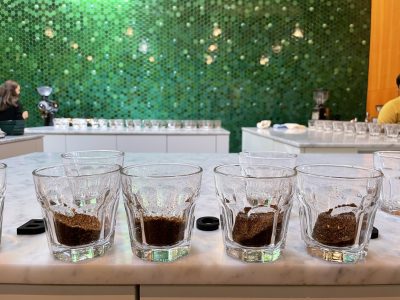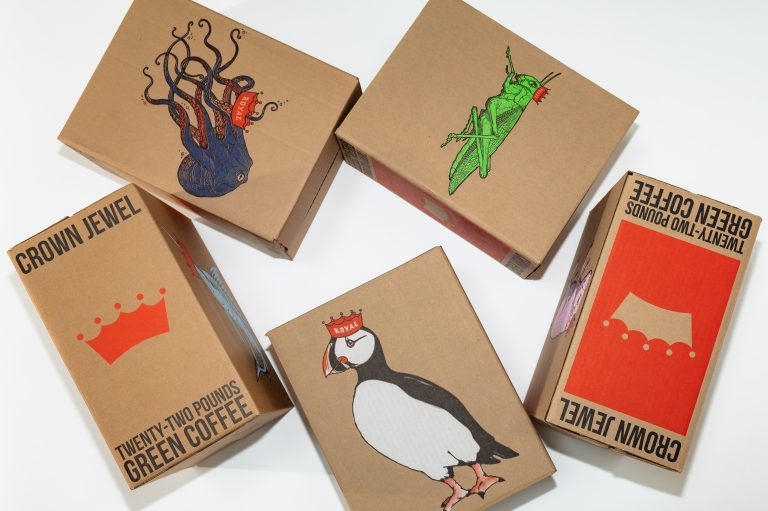Tell us the story of Peace Winds Japan and Café Brisa Serena Timor-Leste. When did your work together start?
Peace Winds Japan (PWJ) is a Non-Profit Organization which has experience in emergency aid in more than 20 countries since its establishment in 1996. PWJ started an emergency aid program in Timor-Leste in October 1999, after a popular referendum followed by a severe violence which displaced tens of thousands of people. Working closely with United Nation’s agencies, PWJ supported uncountable households to rebuild their houses until 2002.
In 2003, PWJ launched a coffee farmers’ income generation program and started providing invaluable assistance to the farmers such as distributing necessary materials for coffee processing and providing instruction on better processing methods to produce specialty coffees. The number of farmers started from 10 in 2003 and increased to 405. Through selling coffees to us, coffee farmers are increasing their household income by almost 60%.
Café Brisa Serena (CBS) is a Social Enterprise established with a support from PWJ in 2010. CBS missions are to continue the PWJ program for promoting and improving the quality of life of coffee farmers, especially in Letefoho sub-district, Ermera Municipality through supporting and branding Letefoho coffee as high quality coffee and delivering it to the International Market.

What was the state of the coffee industry in Timor-Leste before and after independence?
When Timor-Leste became an Internationally Recognized Independent country in May 2002, the people of Timor-Leste lived in extreme poverty. The coffee which supports approximately 25% of population didn’t bring much cash to households, as coffee farmers didn’t have any choice but to sell their coffee cherry or parchment to buyers or middle men for very low prices.
PWJ, with its headquarters in Japan, (the third biggest coffee consuming country in the world) thought PWJ might be able to assist coffee farmers to live better lives through helping to add value to the coffees and connect the farmers more directly to consumers in Japan.
We were introduced to you by Hirofumi Yamamoto. What sort of projects are you working on in terms of farm management?
In 2015, with support by PWJ, CBS received technical assistance for producing high quality coffee by the specialty coffee consultant Mr. Hirofumi Yamamoto, who has lots of experience in coffee growing countries, particularly ASEAN countries such as The Philippines, Myanmar, Lao PDR, and Indonesia.
During his technical assistance CBS improved its ability to solve matters faced by coffee farmers, through giving treatment to prevent coffee trees from being infected by leaf rust, leaf miner, brown eye spot, and coffee berry borer. The other improvement is that CBS also established a Green House Facility to dry parchment collected from each community for ensuring the moisture content and water activity of the coffee according to International requirements before export.
Do you have your own nursery? Are you exploring different cultivars?
Some coffee plantations had been active since Portuguese colonization and were affected by productivity issues. In 2015 CBS cooperated with coffee farmers to establish a Nursery Center for distributing 15,000 Arabica coffee trees, and shade trees as well.

Do people in Timor-Leste drink very much coffee? What is the coffee culture like in your country?
Coffee is the biggest agricultural product produced in Timor-Leste. As a coffee producing country, most Timorese consider coffee as important and necessary every day. Since Portuguese colonization until Indonesian occupation, Timorese know about drinking coffee. However, they never had the chance to have a cup of specialty coffee. In 2014 CBS introduced and promoted Letefoho coffee to the Timorese Domestic Market through produce markets, selling specialty coffee packages, and also establishing a coffee shop named Letefoho Specialty Coffee Roaster which gets appreciation from both Timorese and Foreigners for the quality of Timorese coffee offered.
What is your experience of the coffee industry so far?
As the local staff of PWJ, I am really proud of the the activities of PWJ and CBS. I have learned a lot, and have had many experiences in specialty coffee production. Previously, I did not know that coffee has differences in flavor, if people produce properly. My background is not in agriculture, but only as a coffee lover. I never expected that I would be involved in coffee processing like i am now. Since I joined this program in 2015, I have been motivated to work and promote the coffees produced. I have seen that when a Timorese coffee farmer processes the coffee like they do in Letefoho, he/she has to work hard to be able to offer specialty coffee to a customer.
Look for these lots landing in the near future:
43136 – Timor-Leste Organic Ermera Letefoho Mautlio 30kg Ecotact
43137 – Timor-Leste Organic Ermera Letefoho Eratoi 30kg Ecotact
43138 – Timor-Leste Organic Ermera Letefoho Renumata 30kg Ecotact
43139 – Timor-Leste Organic Ermera Letefoho Hatuhei 30kg Ecotact


